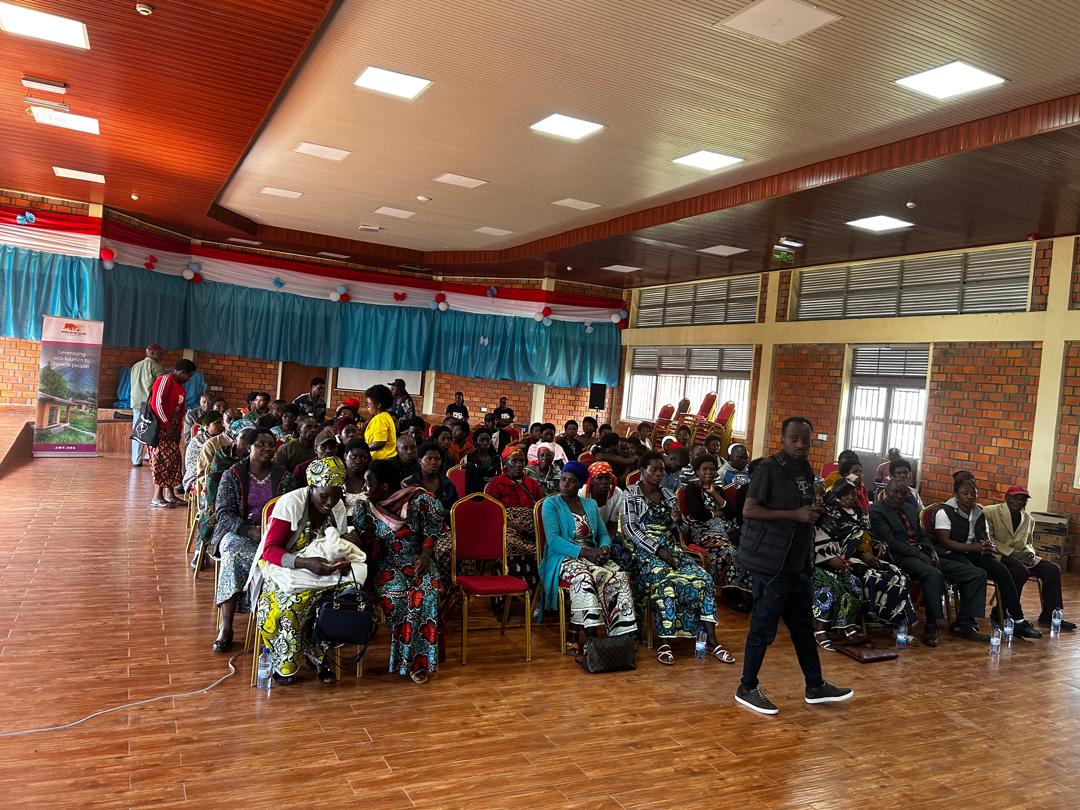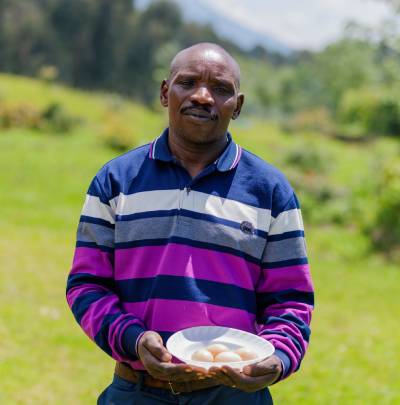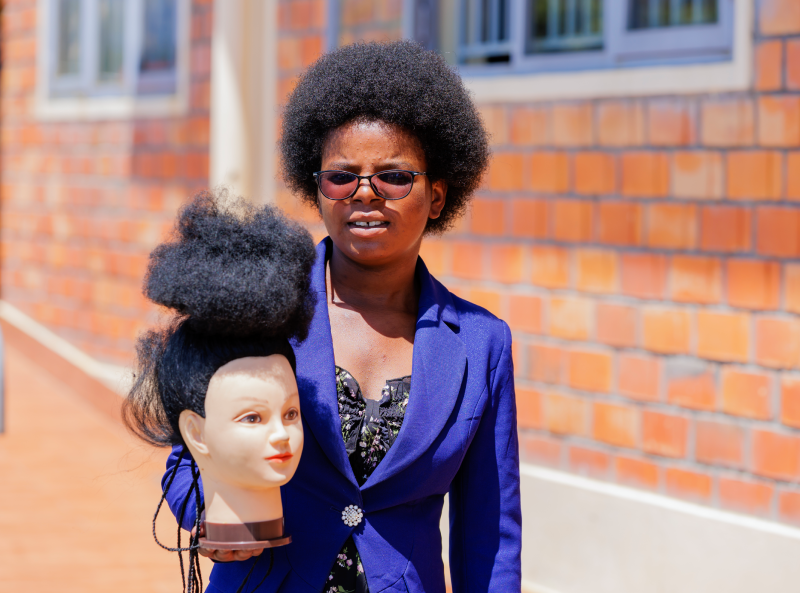Empowering Communities: 102 Local Entrepreneurs Graduate from Conservation-Focused Business Program

More than 100 entrepreneurs celebrate their graduation from a year-long business incubation program supported by AWF and INKOMOKO.
More than 100 entrepreneurs living near Volcanoes National Park (VNP) in Rwanda have graduated from a year-long business incubation program supported by the African Wildlife Foundation (AWF) in partnership with INKOMOKO. Among the participants were 102 entrepreneurs—63% women and 37% men—from the Kinigi sector, northwest of Kigali. The program seeks to protect the park's ecosystems while enhancing local livelihoods by equipping communities with the skills and tools to develop climate-resilient and conservation-friendly businesses.
The entrepreneurs received extensive support, including training, consulting, and guidance on business model development.
“INKOMOKO business advisors coached the entrepreneurs to start their businesses and pitch their ideas to AWF and other partners,” said Patrick Nsabimana, Acting AWF Rwanda Country Director. “The goal was to prepare them for successful operations in a newly constructed modern village, enhancing their livelihoods and creating job opportunities.”
Nsabimana noted that 5% of the incubated entrepreneurs have already begun implementing their projects—a promising indicator of the program’s impact.
Success Stories

Augustin Nzabonimpa, an entrepreneur empowered through the business incubation program, shares his journey.
Esther Uwera, a farmer from Musanze District, shared how the program empowered her to focus on her chicken farming project. “The training gave me the knowledge and skills to manage my project,” she said. “I also conducted online research, which boosted my confidence to launch successfully.”
Uwera’s project aims to combat stunting and poor nutrition in Kinigi by providing affordable chicken products, including meat and eggs. She also plans to address unemployment by hiring up to five workers within five years. “This project is a pathway to improving my livelihood while uplifting others,” she said.
Similarly, Augustin Nzabonimpa, a chicken farmer specializing in Kuroiler chickens, highlighted the potential of his project to improve nutrition in the Kinigi sector. “By providing affordable poultry products, I hope to enhance food security and create jobs for residents relocating to green neighborhoods near the park,” he said.
Francine Nyiramugisha, a hairdresser in Musanze District, used the program to establish a modern salon equipped for both men’s and women’s grooming. “My project addresses youth unemployment by offering training in braiding and haircutting,” she said. “I plan to train students who will pay for lessons and later employ them in my salon.”
Nyiramugisha aims to significantly expand her business within five years while contributing to her community’s economic development.

Francine Nyiramugisha, a hairdresser and participant in the business incubation program.
Addressing Conservation and Community Needs
Volcanoes National Park, located in northwest Rwanda, is home to endangered mountain gorillas and other rare wildlife. Conservation efforts have increased the mountain gorilla population from 400 in the 1990s to 1,004 across Rwanda, Uganda, and the Democratic Republic of Congo. Despite these gains, gorillas remain threatened by habitat loss and fragmentation.
To address these challenges, the Rwandan government, with support from partners, has initiated plans to expand the park’s boundaries by 23%, affecting about 600 households.
AWF and INKOMOKO are committed to empowering communities impacted by the park’s expansion by fostering sustainable economic growth. Through a rights-based approach that prioritizes Free, Prior, and Informed Consent (FPIC), the business incubation program stimulates the creation of environmentally responsible enterprises. This initiative aims to generate employment opportunities and promote economic self-sufficiency for affected households.
The program highlights the synergy between conservation and sustainable development by prioritizing sectors such as sustainable agriculture, handicrafts, and nature tourism. Its goal is to reduce dependence on climate-vulnerable livelihoods while easing pressure on protected areas.